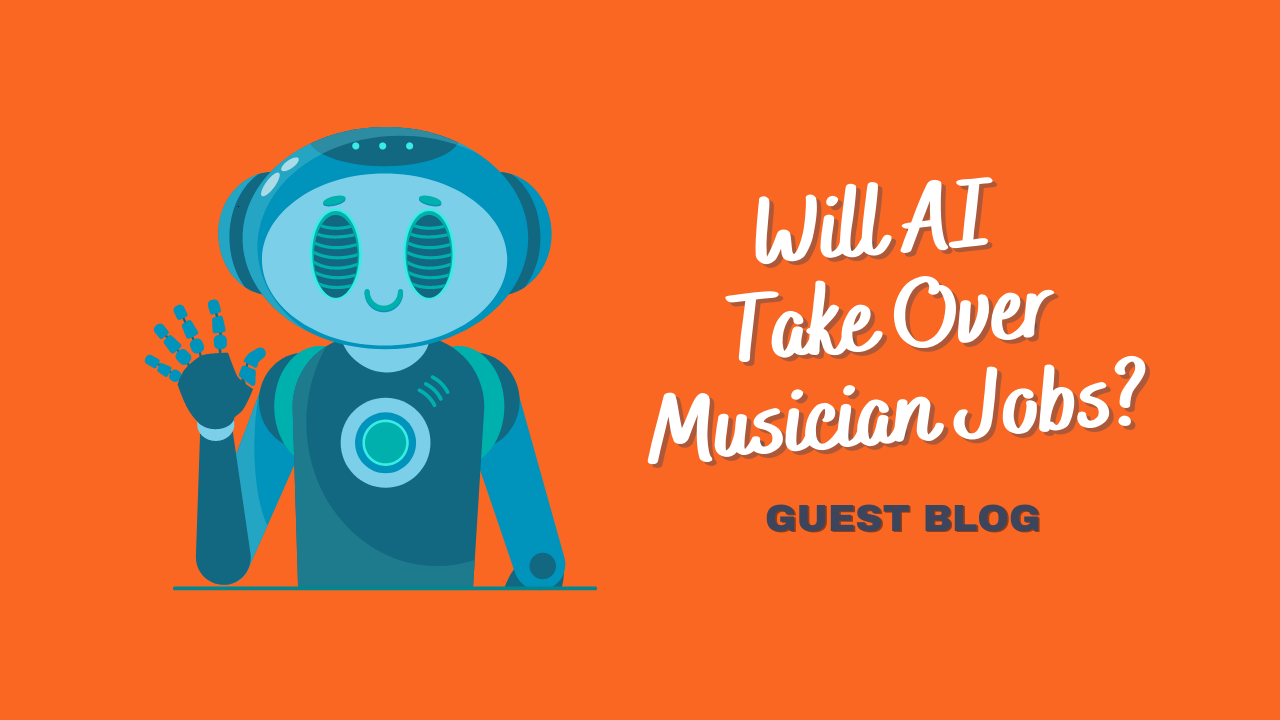Guest Author: Ramiro Somosierra
Ok, yes: AI is the new buzzword, as “NFT” was last year (or was it the one before?) but if you had spent at least 5 minutes with ChatGPT these previous months you probably know there’s a reason for it.
And while seemingly intelligent chatbots are just an application of the technology, they are scarily good enough to worry us all about our jobs.
But calm down.
I’m here to tell you, most likely, everything will be alright.
Hey there, this is Ramiro from GearAficionado, an online music magazine. Apart from being a musician, I also have a Master’s in Applied Economics, and I did my dissertation on the effects of automation in the job market.
To begin with, let me say, this has already happened in other industries, and we are still here.
Arguably, we are way better than before heavy automation entered the market.
Let’s go briefly through two examples:
The Car
When the car was invented, everyone was heavy on the horse.
Soon enough, the mechanical alternative was accepted as a more efficient alternative, and although the industry built around animal transportation came to a steep decline, ultimately the amount of business the car generated completely offset the losses.
ATMs
Before ATMs, if you needed to deposit or withdraw money from a bank you needed to talk to a human.
Crazy, huh?
More crazily, being a teller was, by far, the most common job at a bank.
Now, enter the ATM, and tellers rapidly become obsolete.
Although tragic at first, the outlook ended up being favorable.
Running a bank branch with ATMs instead of people for those tasks greatly reduced the costs, allowing financial institutions to open a lot more subsidiaries nationwide.
After a decade, the number of bank jobs not only hadn’t decreased: It actually grew.
Music
But what has this all to do with music and musicians?
Well, everything.
The first thing to understand is that until we develop a generalized AI with abilities no different than those of a human, you can only automate tasks and not jobs.
What will happen to us musician is that we will be replaced in only the most basic and repetitive tasks by robots.
But, on the other hand, it will allow a lot more people to finish more work more quickly.
Think of composing or recording a new song in 10% of the time it would usually take you.
Probably if you are on an artistic search this will not mean much to you, but if you are a composer, an arranger, or a sound designer, it could be the world for you.
On top of this, it’s likely that a lot of people interested in music, but without the theoretical knowledge required would jump in and start creating their own tracks.
Music will be democratized just like singing was when Autotune and Melodyne stormed the scene.
And, of course, these “vocal enhancing” tools can’t make you sing like Sinatra, but they helped spawn a completely new thing.
With more music out there, more music-adjacent jobs will be created.
And while perhaps your actual dream job might change in shape or cease to exist, opportunities will rise.
The best thing we can do is stay up to date with what’s happening, and don’t try to fight the technology, but rather learn how to incorporate it into our current workflows.

